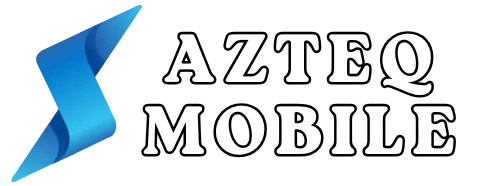In a world where traditional classrooms feel like relics of the past, e-learning jobs are popping up like mushrooms after a rainstorm. If you’ve ever thought about trading your 9-to-5 for a more flexible gig in the digital education space, you’re not alone. The shift to online learning is growing faster than a cat meme goes viral, and opportunities abound for those ready to immerse. So, grab your coffee and let’s explore this exciting realm of e-learning jobs that just might be your next career move.
Table of Contents
ToggleThe Growing Demand for E-Learning Jobs

As the digital landscape evolves, so too does the demand for e-learning jobs. Companies are increasingly shifting their training modules online. This trend isn’t just limited to educational institutions: businesses of all sizes are investing in online training resources for their employees. In fact, recent studies show that the global e-learning market is expected to exceed $375 billion by 2026.
This growth is fueled by several factors: the convenience of online education, the ability to reach a global audience, and the decreasing costs associated with tech-driven training methods. So, educational professionals, corporate trainers, and instructional designers are in higher demand than ever before. Whether it’s developing engaging content or managing an entire online learning platform, opportunities are seemingly endless.
Types of E-Learning Jobs
When it comes to e-learning jobs, options are as diverse as pizza toppings. Here are some prominent roles to consider:
Instructional Designer
Instructional designers create engaging educational materials that help learners achieve their goals. They design courses, develop content, and use multimedia elements to enhance the learning experience.
E-Learning Developer
E-learning developers focus on building the platforms and software that host online courses. This role often requires technical expertise in various authoring tools and programming languages.
Online Course Instructor
Whether they are seasoned educators or industry professionals, online course instructors lead classes and help discussions, providing valuable insights and mentorship to students.
Learning Management System (LMS) Administrator
LMS administrators manage the software used for delivering e-learning courses. They ensure the system runs smoothly and that both instructors and students can navigate it effectively.
E-Learning Content Writer
Strong writing skills come into play for those who craft the written materials for e-learning programs. These professionals need to adapt complex information into easily digestible content.
Key Skills Needed for E-Learning Roles
Transitioning into the e-learning sector requires a unique blend of skills.
Technical Proficiency
Familiarity with various e-learning tools and Learning Management Systems (LMS) is essential. Professionals should be comfortable with software like Articulate Storyline or Adobe Captivate.
Communication Skills
Strong verbal and written communication skills help create clear instructional materials and help effective learner interactions.
Creativity
Developing engaging and innovative content requires a creative mindset. E-learning creators should be able to think outside of the box to captivate their audience.
Analytical Thinking
Evaluating educational effectiveness through data and feedback requires analytical skills. Professionals must make informed decisions on course design and delivery based on metrics.
Where to Find E-Learning Job Opportunities
Finding e-learning job opportunities isn’t a game of hide-and-seek: it can be straightforward with the right approach.
Job Search Websites
Platforms like LinkedIn, Indeed, and Glassdoor regularly post openings for e-learning roles. Searching using keywords like “e-learning,” “instructional design,” or “online teaching” can yield fruitful results.
Professional Networks
Joining professional organizations, attending webinars, and participating in e-learning conferences can expand one’s network. These events often reveal job postings and industry insights.
Freelance Platforms
For those preferring flexibility, websites like Upwork or Freelancer feature many e-learning projects. Freelance opportunities allow professionals to build their portfolios while working on varied projects.
Tips for Landing an E-Learning Job
Securing an e-learning job can be competitive, but it’s not rocket science. Here are some practical tips:
Build a Strong Portfolio
Having a portfolio that showcases previous work can set applicants apart. Include case studies or samples of course materials, videos, and assessments.
Tailor Resumes
Customizing resumes to fit specific job descriptions helps highlight relevant experiences and skills. This shows potential employers that the applicant is genuinely interested.
Continuous Learning
The e-learning industry evolves quickly, so continuous professional development is crucial. Online courses, certifications, or webinars can boost skills and marketability.
Networking
Use platforms like LinkedIn to connect with professionals already in the field. Engaging with their content can open doors to job referrals and mentorship opportunities.
Future Trends in E-Learning Employment
Trends in e-learning employment suggest a dynamic future.
Rise of AI and Automation
Artificial intelligence is not just a buzzword: it’s reshaping how online education is delivered. AI can help personalize learning experiences and streamline administrative processes, creating more jobs focused on maintaining these systems.
Increased Focus on Soft Skills
As technology advances, employers emphasize soft skills, such as adaptability and problem-solving, alongside technical knowledge in candidates.
Remote Work Opportunities
Flexibility is increasingly valued. Many e-learning roles offer remote work, allowing professionals from around the globe to collaborate seamlessly. This trend is likely to persist as remote work becomes more normalized in various industries.



